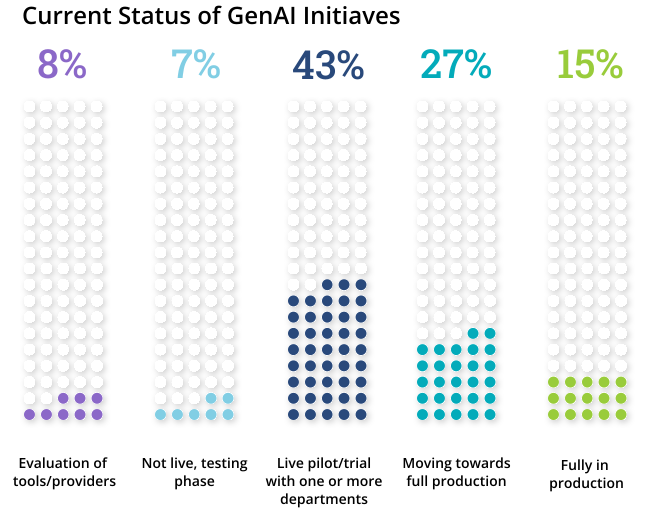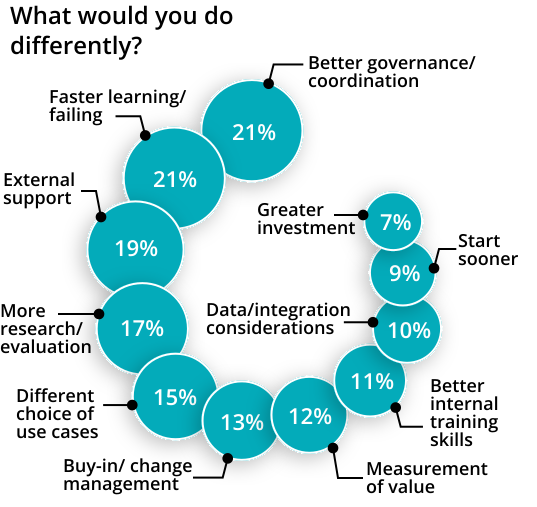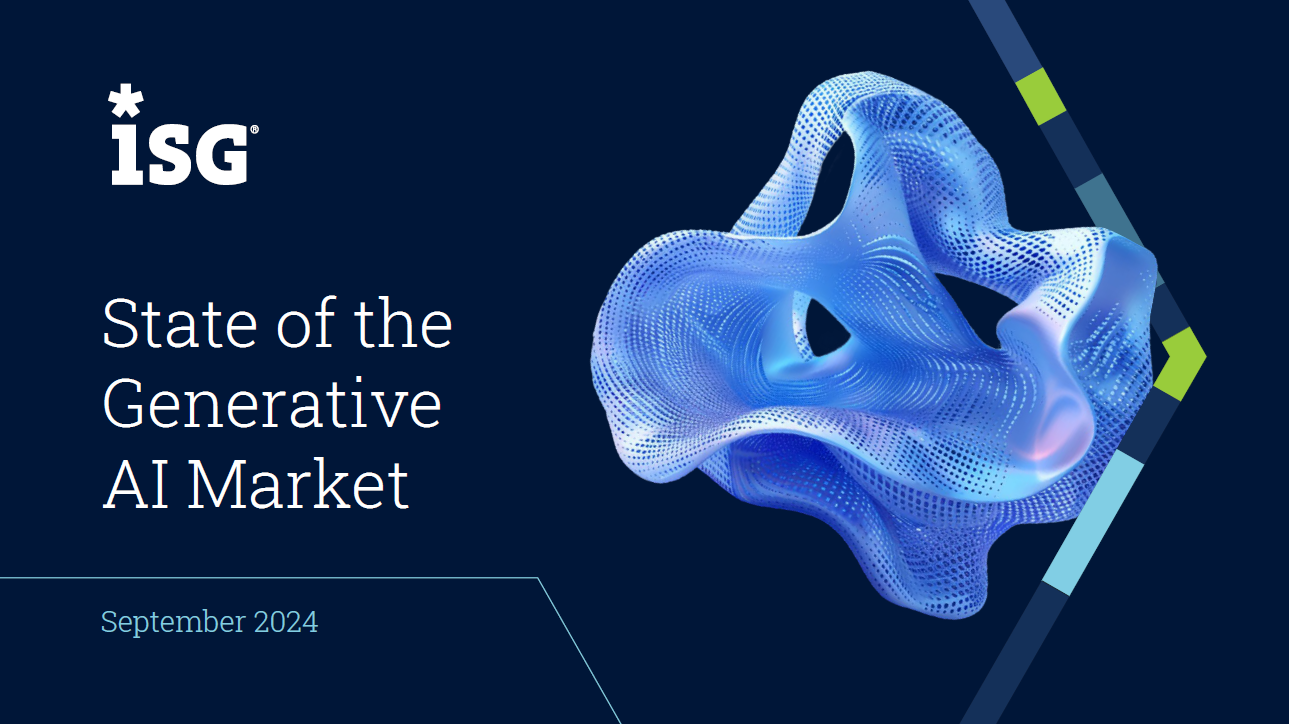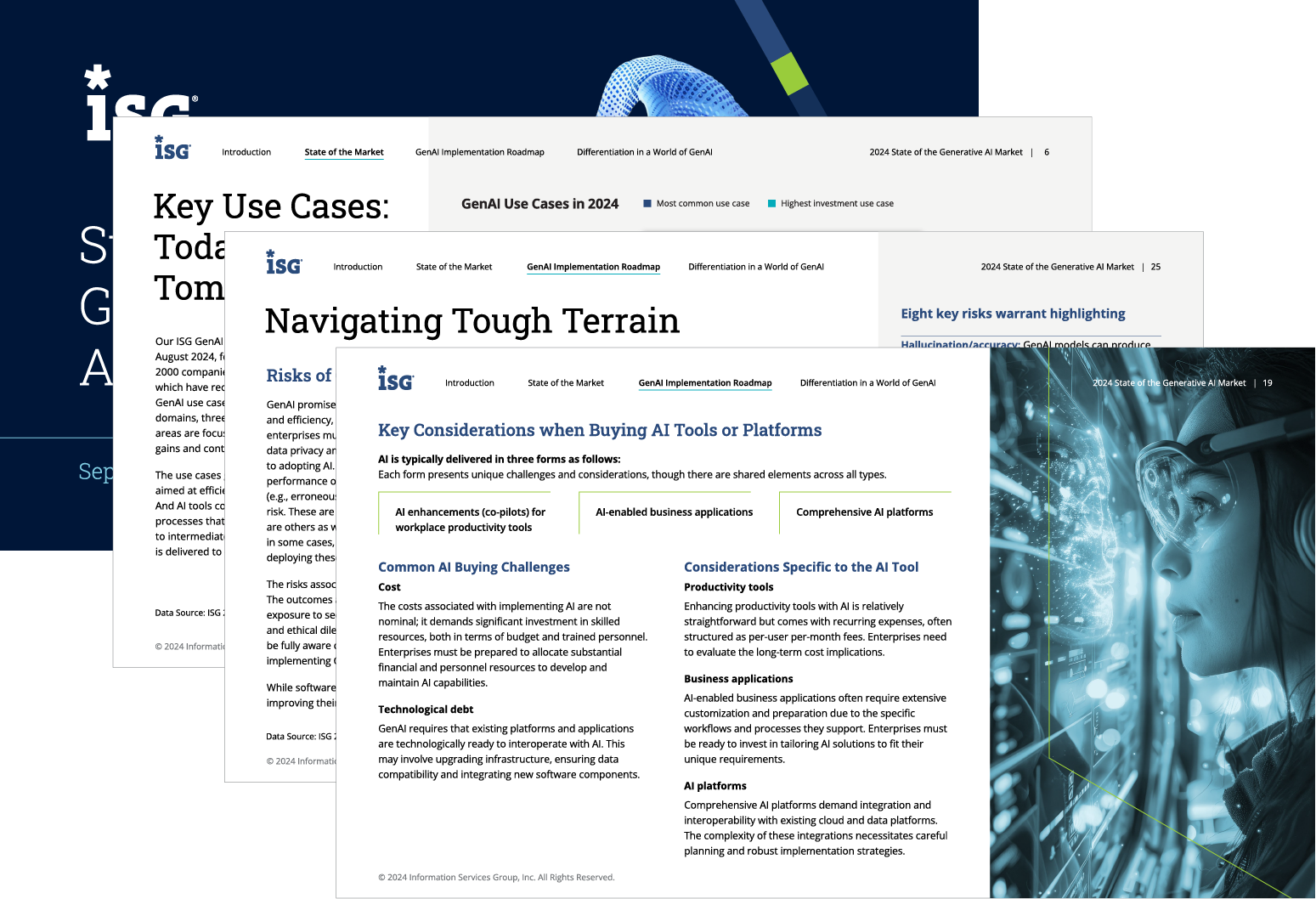
State of the Generative AI Market Report
What your business needs to know to get GenAI projects right.
Get deep GenAI market data, a realistic understanding of potential pitfalls, and advice on how to invest in the right expertise and infrastructure.
How Is Generative AI Money Being Spent?
Applications/software
(incl. software as a service)
Personnel
(incl. contractors and staff aug.)
Infrastructure
(e.g., storage and compute)
Outsourced
(managed services)

Current Status of Generative AI Initiatives
Scaling GenAI from pilot projects to full-scale production deployments remains fraught for enterprises. Presently, neither enterprises nor software or service providers have established a repeatable and reliable path from initial pilot use cases to large-scale, production-ready workloads.
If you could do it all again, what would you do differently?
When asked what they would do differently to enhance value or accelerate time to value in a significant GenAI initiative, one of the top responses from enterprises was the need for improved governance and coordination.

Let's dive in...
Bring your GenAI questions to the table as you sit down with this report.
What’s actually happening out there with GenAI — beyond the hype? What types of use cases are having an impact? Should you build or buy? What key risk is in your blind spot? And if everyone keeps pace with adoption anyway, is it even possible to achieve differentiation?
This data- and insight-packed report is designed to be a key resource as you navigate your AI planning and evaluation over the next six months.

Page Count: 34

